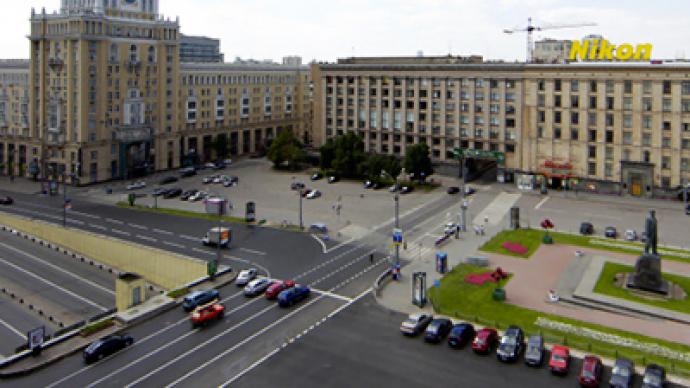The View from St Petersburg: Jack Arnoff

With business and economic leaders gathering for the St Petersburg International Economic Forum Business RT spoke with Jack Arnoff, director at Elbrus Capital, about plans to increase Moscow’s profile as a financial centre.
RT: Tell us about how you think Moscow can become a financial hub.JA:“Well looking back 20 years since we first started to invest in Russia, there has been a tremendous progress, no doubt.And Russia, and Moscow in particular, is becoming a gravitational centre, so there is political economical gravitation centre.And therefore there is no reason why it shouldn’t be a financial centre for the whole region. But there is a lot of work to be done and I would like to immediately point to one weakness of the Russian financial system, which has to be addressed, and it’s very unique looking from a global perspective – no other major economy in the world has such a tremendous lack of domestic capital for the financial market, being equities or bonds.And in that sense Russia is very unique, with virtually no presence or no existence of pension and mutual funds which would provide domestic capital to support the equity market and to provide liquidity for that.And I think that is a very specific domestic problem that authorities have to address in order to provide the background for successfully creating a financial centre.And it’s extremely important – I cannot overemphasize it, because looking back since ’98 and 2008, the two crises, Russia always stands with tremendous volatility, which scares away investors and makes it very difficult to sell Russia as an investment case, purely because of the volatility.And I believe the major reason for the volatility is that lack of domestic dedicated capital.If we look around, being Brazil, India, China, Turkey – I am just talking about emerging markets – all of them have rapidly developing pension systems, which is dedicated capital for the local markets.They provide support for the valuations and that’s why none of these markets have experienced anywhere close to the volatility that Russia experienced during 2008.And I believe that will be a major step forward.The availability of a deep pool of money, which Russia has anyway, but it is not organized, will really provide and attract interest, not only from investors, but also from companies – regional companies, which would like to access that volatility and in that sense will expand and diversify the Russian market.”RT: What do you think the government can do in order to help foster this?JA:“Well they need to put a framework in place, and really show commitment towards building the pension system in the country. No major economy can exist without a structured pension system and insurance system, and in that sense, that is something Russia lacks completely.So putting in place the framework for the pension funds and the mutual funds is something very important – the legal framework.And I am not able to explain why they haven’t done this so far.I am not sure whether that is a politically very risky venture, but they really need to address it.”











